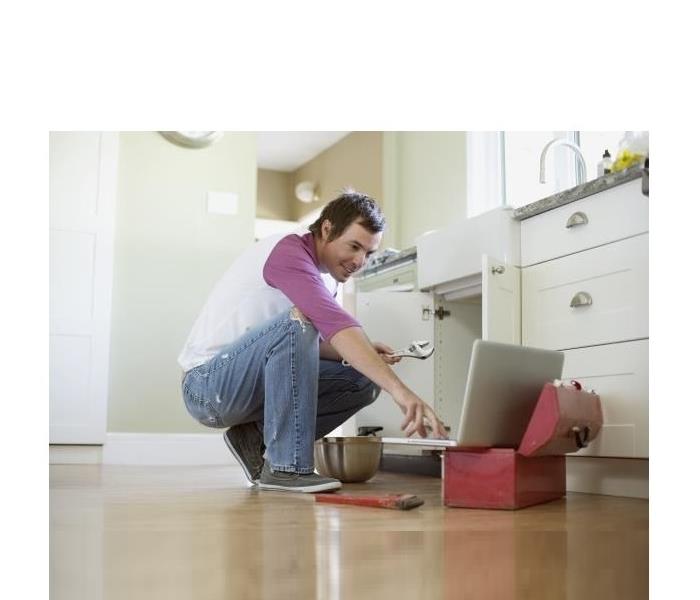Simple Seasonal Tips to Keep Plumbing Operating Smoothly
3/18/2016 (Permalink)
With proper seasonal maintenance, you can keep your plumbing running smoothly. Even those with no experience can inspect for issues and perform little tasks to prevent costly repairs.
Here are some key plumbing tips:
Kitchens and Bathrooms
Ensure drains have strainers to prevent debris from clogging drain lines. Check faucets for drips and leaks.
Inspect the toilet tank and bowl for visible cracks. Check for hidden leaks by adding six drops of food coloring to the tank. If the toilet is leaking, color will appear in the bowl within 30 minutes.
Ensure toilets flush properly. If the handle must be held down to flush, or jiggled to stop water from running, you may need to replace parts.
Clean mineral deposits from the shower head. Unscrew it and soak in vinegar overnight. Then gently scrub with an old toothbrush.
Water Heater
Carefully drain several gallons from the tank to flush out corrosion-causing sediment, which reduces heating efficiency and shortens the life of the heater. Consider replacing those older than 15 years with a new, energy-efficient model.
Appliances
Check your dishwasher, washing machine and ice maker’s supply hoses for bulges or leaks. Replace hoses showing signs of weakness or those older than ten years. Use stainless steel hoses, which are more reliable and less prone to bursting.
Clean your washing machine lint trap, and place a wire trap or a piece of pantyhose over the end of the hose that drains the washer.
General
Pour water into infrequently used drains to fill traps and prevent odors. Slow floor drains should be snaked to ensure they’ll carry water away during flooding.
Take a reading on your water meter before bedtime. The next morning, without using any water overnight, take another reading. If it’s changed, you have a leak that should be repaired.
Outside
- Free yard drains, gutters and downspouts of debris. Check for bird nests in plumbing vent pipes. Check faucets and hose bibs to ensure water flows freely. If an outdoor faucet drips, or if there is leakage inside your home the first time the hose is turned on, you may have had a frozen pipe that cracked and needs to be replaced.
A few minutes of maintenance could save you tens of thousands of dollars in costly repairs.






 24/7 Emergency Service
24/7 Emergency Service
